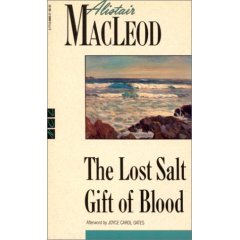
Take my Since Harry survey.
Also posted on NowPublic.com
Since 1997, when J.K. Rowling published the first Harry Potter book, the Philosopher’s Stone has been compromised, the Chamber of Secrets has been re-opened, the prisoner of Azkaban has turned out to be Harry Potter’s godfather, the Goblet of Fire has become a portkey that tricks Harry Potter and brings him to Voldemort, the Order of the Phoenix have reconvened to fight the Death Eaters, the Half-Blood Prince has saved Harry at potions but has destroyed a beloved friend … and now we’re at the Deathly Hallows. The eve where the thin veil between the muggle world and the magic world disappears.
Tonight, at midnight, is the release of Harry Potter and the Deathly Hallows.
For many it is the end of a 10-year saga. For early fans of the book, Harry has gone from 11 to 17. He’s had his first kiss, he’s watched friends die, he’s had to make hard choices, he’s made the strongest friendships imaginable. For fans, some have gone from having the book read to them as children to graduating high school. They too have had first kisses, fights with friends, perhaps had family or friends die, and have had to make tough choices. For others, children have grown up and left home, there have been marriages, divorces, graduations, babies, retirement, happy times and sad times.
Ten years of Harry Potter–magic, madness and Pottermania–are coming to a close.
How will you remember this time? What’s happened in your life since 1997? If you’re a fan of the books, what’s happened in your life since Harry?
Tell your story on SinceHarry.com
Or take the Since Harry survey.
Aggregated results will be posted on SinceHarry.com.
UPDATE:
As of July 20, 2007: Early response to the survey shows that of 100 respondents:
* 86.8% had read at least one Harry Potter book
* 28.3% started reading Harry Potter in 1998
* 33% are planning to attend a midnight party for Harry Potter and the Deathly Hallows
* 74% are planning to buy the book vs. borrow it from a library or friend (11%) or not read the book at all (15%)
In response to “What’s happened in your life since 1997”, the following life events are the most common:
* 72.6% travelled
* 71.6% changed jobs
* 66.3% saw all the Harry Potter movies
* 65.3% had a death in the family or of a friend
* 59% learned to pronounce Hermione
* 57.9% have gotten excited about a book launch
* 55.8% started a blog

 I read in the The Windsor Star today that Alistair MacLeod has been appointed to the Order of Canada by Gov. Gen. Michaelle Jean.
I read in the The Windsor Star today that Alistair MacLeod has been appointed to the Order of Canada by Gov. Gen. Michaelle Jean. Via the Raincoast Harry Potter newsletter;
Via the Raincoast Harry Potter newsletter;